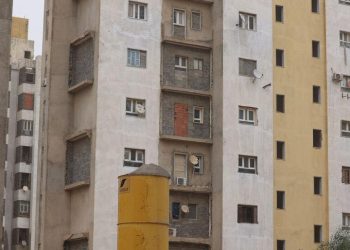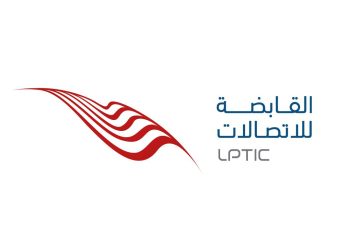The final communiqué issued at the end of the two-day ‘‘Consultative Meeting’’ held by members of Libya’s parliament (the House of Representatives – HoR) – and the High State Council (HSC), between 18 and 19 December in Bouznika, Morocco, seems to have added little new to the stagnant Libyan political process. There was definitely no major earth-shattering breakthrough at Bouznika.
As Libya comes to the end of yet another year without constitutionally based elections, the two parties repeated their well-versed lines of paying lip service to elections, sovereignty and the rights of Libyan citizens – but offered nothing new to extricate Libya from its political quagmire since the 2011 revolution that ended the 42-year-old Qaddafi regime. A regime that was ended by the then decisive intervention of the international community.
The two parties agreed the obvious; namely that the transitional/interim phase of weak, unmandated and unconstitutional governments since 2011 must end through free and fair elections. But offered no new solution to agreeing new fair election rules accepted by all sides.
Election rules assure win-win for Saleh and Hafter
It will be recalled that the eastern-based HoR Speaker Ageela Saleh and military commander Khalifa Hafter got their rump of 20 to 40 HoR members (with the rest of the 200 members boycotting the HoR) to agree on election rules that would guarantee a win-win outcome. That is, if Saleh and Hafter lost in their bids to become president or prime minister in an election, they would return to their pre-election posts.
Aldabaiba refuses to give up power too
As a result, Tripoli based Libyan prime minister Abdel Hamid Aldabaiba, who is no political angle himself, has refused to give up power before the holding of elections if Saleh and Hafter have fiddled the election rules to guarantee a return to their power positions.
It is ostensibly for this reason that Aldabaiba has refused to allow for a ‘‘new unified government’’ to be formed prior to the holding of elections. For him, this reads a government that excludes him and is controlled by the Saleh-Hafter camp. After removing Aldabaiba from the political equation, the Saleh-Hafter camp would fiddle the elections, or fail to go through with them – therefore inheriting full power for life.
All Libya’s current failed elite must give up power – simultaneously
His counteroffer to Saleh and Hafter is that all the current political elite, including himself, put their chips on the table and spin Libya’s political roulette table – and let Fortuna decide their fates through fair and free elections.
Libyan ownership – or a veto by Libya’s existing ruling elite
The two parties in their Bouznika communiqué expressed their full support for the UN’s latest political initiative but insist on ‘‘Libyan ownership’’ of the process. This translates into the existing political elite having a continuing veto on any process or outcomes that may counter their interests or remove them from power. It is their continued control of power in Libya that is paramount to the Libyan political elite – not the interest of Libyan citizens.
The HoR and HSC have done nothing since December 2021
The two bodies also agreed in their Bouznika communiqué to embark on ‘‘joint work’’ to ‘‘begin to address various files through specific tracks’’. It will be recalled that Libya’s December 2021 elections were abandoned, and all Libya’s ruling elite have sat twiddling their thumbs for three years doing absolutely nothing tangible. On the contrary, they have used every trick in the political playbook to procrastinate, avoid consensual agreement on election rules and the holding of constitutionally based elections.
A reaction to Koury’s new Libya political initiative?
Is it by pure coincidence then, that days after Acting UNSMIL head Stephanie Koury launched her new political roadmap initiative for Libya (on 16 and 17 December) that the two status quo bodies sprang into action and turned up overnight in Morocco?
This begs the question: Are the two bodies working with Koury and her initiative or are they reacting in order to sabotage her initiative in case it really does result in elections. Elections that would cause the incumbents of the two houses – the ‘‘status quo’’ – to lose power.
The Bouznika meeting: Part of the continuing political charade to delay elections
In conclusion, the by-now routine pilgrimage to Morrocco has become par for the course in Libyan politics. It is part of the charade by Libya’s political elites to fool Libyan citizens that they are really interested in changing the status quo. It is simply part of the mechanism used by the political elite to prolong Libya’s misery and not solve it. In other words, by simply meeting the two bodies want to project the false impression that they are working on a solution or that they are getting nearer to reaching a solution.
It is a feeble and absurd political pretence intended to create a pleasant and respectable appearance of wishing to hand over power to new elected bodies.
Not enough carrots and sticks to make the HoR and HSC give up power
The reality is that there are no adequate domestic or international carrots or sticks in place to encourage or force the two bodies to hand over power. Libya’s political elites get paid handsome salaries and ”perks” as long as they remain in power – with no mechanism to end their tenure. Libya’s rentier state status means no one must work to pay the state taxes to pay for the two bodies. There is plenty money to go round from the oil tap. Infinite money and infinite tenure lead to a stagnant, corrupt political status quo.
On this, Acting UNSMIL head Koury said to the UN Security Council this week: ”we must be mindful of the successive transitional governments and Libya’s decade long and open-ended interim arrangements.”
The international factor
Then there is the international perspective. It is obviously clear that there are anti-democratic international forces that have absolutely no interest in democracy succeeding in Libya. Some states want Libya to remain weak and fear a strong Libya akin to the Qaddafi era. Other states want dictatorships to continue. Other states fear losing their current influence and others fear the unknown possible outcomes of free Libyan elections. The relative stability of the status quo seems the least bad option for many states.
Using the rentier state to buy public acquiescence
Sadly, this increasingly includes Libyans who now value relative stability to the insecurity and disorder that a democratic effort may bring. A fact that is well known to Libya’s corrupt political elites and the international community. Hence, and ironically, Libya’s ruling elites use the country’s – the people’s – oil money to buy their acquiescence to the corrupt status quo. Look away and turn a blind eye to democracy and possible disorder and unrest and be satisfied with state jobs and state subsidies such as hyper-cheap fuel and electricity, and very little effective taxation, for example.
A domestic and international ‘‘status quo’’ conspiracy against Libyan citizens
Hence, there has emerged over the last 13 years a silent conspiracy between domestic and international status quo forces against Libyan citizens and hence democracy. The international community keep recognising the expired legitimacy and mandate of Libya’s political elites through continuous meetings and dealings. This helps enshrine and extenuate the status quo. It helps to keep Libya weak enough not to collapse but strong enough to continue pumping oil. It allows Libya to keep spending oil-dollars abroad and living self-sufficiently off its own revenues – and most importantly – without international aid. This relative weakness makes Libya malleable / subservient, with just enough false self-sovereignty to save face.
Libya’s status quo stability is fragile and thin – its transitional architecture is crumbling
Acting UNSMIL Head Stephanie Koury made some pertinent comments in her remarks to the UN Security Council this week about Libya’s fake status quo and its veneer of stability. ”The status quo is unsustainable and has persisted for too long. Unilateral actions pursued by political elites have deeply eroded Libya’s institutions into parallel and competing structures.
The recent crisis over the leadership of the Central Bank of Libya exposed the fragility of the veneer of stability of Libya’s prolonged political stalemate. It also served as a stark reminder that it is high time for Libya to build strong institutions to address issues of uncontrolled spending and a fiscal deficit, establish a stable economy, against the backdrop of the possible decrease of global oil prices.
Further, the continuing divisions over the leadership of the High Council of State, compromise its ability to exercise its functions. This is another sign that Libya’s transitional architecture is crumbling under the weight of political polarization and the lack of a clear project for a permanent system of governance”.
The international community split over Libya is keeping Libya weak
If the international community is serious about democracy and enshrining the self-determination of the Libyan citizen – it must put an end to this 13-year-old political charade. It must use strong carrots and sticks to force Libya’s current political elite to hold fair and free elections.
Therein lies the problem. There is no unified ‘‘international community’’. Some states want Hafter and a relatively weak Aldabaiba to remain in power and in need of their support – whilst others are prepared to pay lip service to democracy and free elections – but are not prepared to do enough about it to force the issue. They are not prepared to be decisive in installing democracy as they were in removing Qaddafi in 2011.
Libya cannot wait
Those in the international community who genuinely want democracy for Libya cannot simply wait for the current political elite to give up power. People who hold power do not give it up. If as Koury said Libya’s stability is fake and could crumble, the pro-democracy states in the international community must be proactive and do more. Repeating the same type of failed initiatives in the same manner will lead to the same failed previous outcomes.
The pro-democracy states must not allow the current Libyan political elite to continue to laugh in their face and continue to blatantly delay handing over power to the Libyan people by holding free and fair elections. They simply must be more decisive in installing democracy and elections.
Let me put it in a simpler and more topical way. Being December and days away from Christmas: Turkeys do not vote for Christmas! Libya’s political status quo elite must be forced to hold fair and free constitutionally based elections. They are not going to voluntarily walk to the political slaughterhouse.
13 years after the Qaddafi regime was removed…
Hence, UNSMIL continues to have its mandate renewed, the UN Security Council continues to hear regular Libya briefings, Libya’s overseas assets remain frozen, Libya meetings and summits continue to be held, and initiatives continue to be launched – 13 years after the Qaddafi regime was removed ostensibly for the sake of democracy and the Libyan people.
In Koury’s words to the UN Security Council this week ”Libya’s guns largely remain silent, but it is neither stable nor at peace”.
Roll on 2025 and the 14th anniversary of the 17 February 2011 revolution – with no real peace or stability for Libya.
HoR and HSC ‘‘Consultative Meeting’’ in Morocco’s Bouznika, 18 – 19 December, agrees on 4 outcomes
Koury’s remarks to the UN Security Council reveal her four-point political initiative










